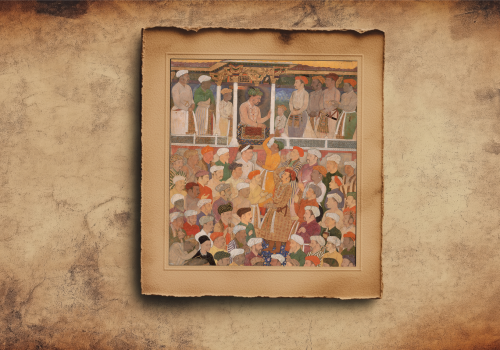From this humble start, he rose to the position of chamberlain (deorhiddr) or “the royal doorwayman” an office he held for almost 15 years with a temporary break in 1818. The office commanded great influence and authority. As chamberlain, Khushal Singh /`as master of royal ceremonies and superintendent of both the royal palace and the Darbar. None could have access to the sovereign or enter the palace without his prior permission.Jamadar Khushal Singh excelled as a soldier as well. He served in various military expeditions Kashmir (1814), Mukan (1816), reduction of southwestern Punjab (1820), Mankera, Leiah and the Derajat (1820), Peshawar (1823) and Karigra (1828).
In 1832, he was sent to Kashmir to assist its nazim, Karivar Sher Singh, with “a committee of the three” the other two being Shaikli Imam udDin and Bhai Gurmukh Singh. He enjoyed the esteem of Karivar Nau Nihal Singh, but his influence declined after the accession of Maharaja Sher Singh, who was annoyed with him for his overt support to Maharaja Kharak Singh`s widow, Maharam Chand Kaur. The Dogra faction was opposed to him and, although he generally kept aloof from courtly intrigue, he suffered many an indignity during the ascendency of Hira Singh and his adviser Pandit Jalla. He was deprived of part of his jagirs; yet on his death on 18 June 1844, he left his son, Kishan Singh, a vast estate and considerable riches secreted in British territory.
References :
1. Suri, Sohan Lal, `Umddt ut-Twankh. Lahore, 1885-89
2. Latif, Syal Muhainmad, History of the Punjab. Delhi, 1961
3. I lasrat, U.J., I.iff and Times of Ranjit Singh, I loshiarpur, 1977


